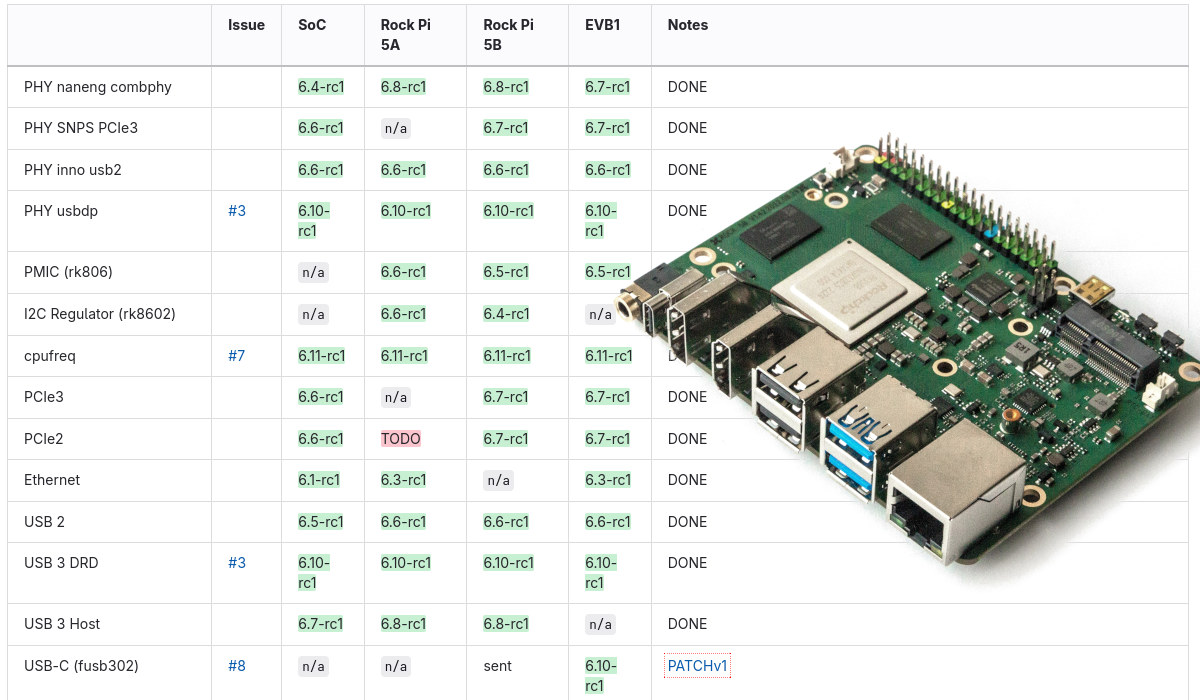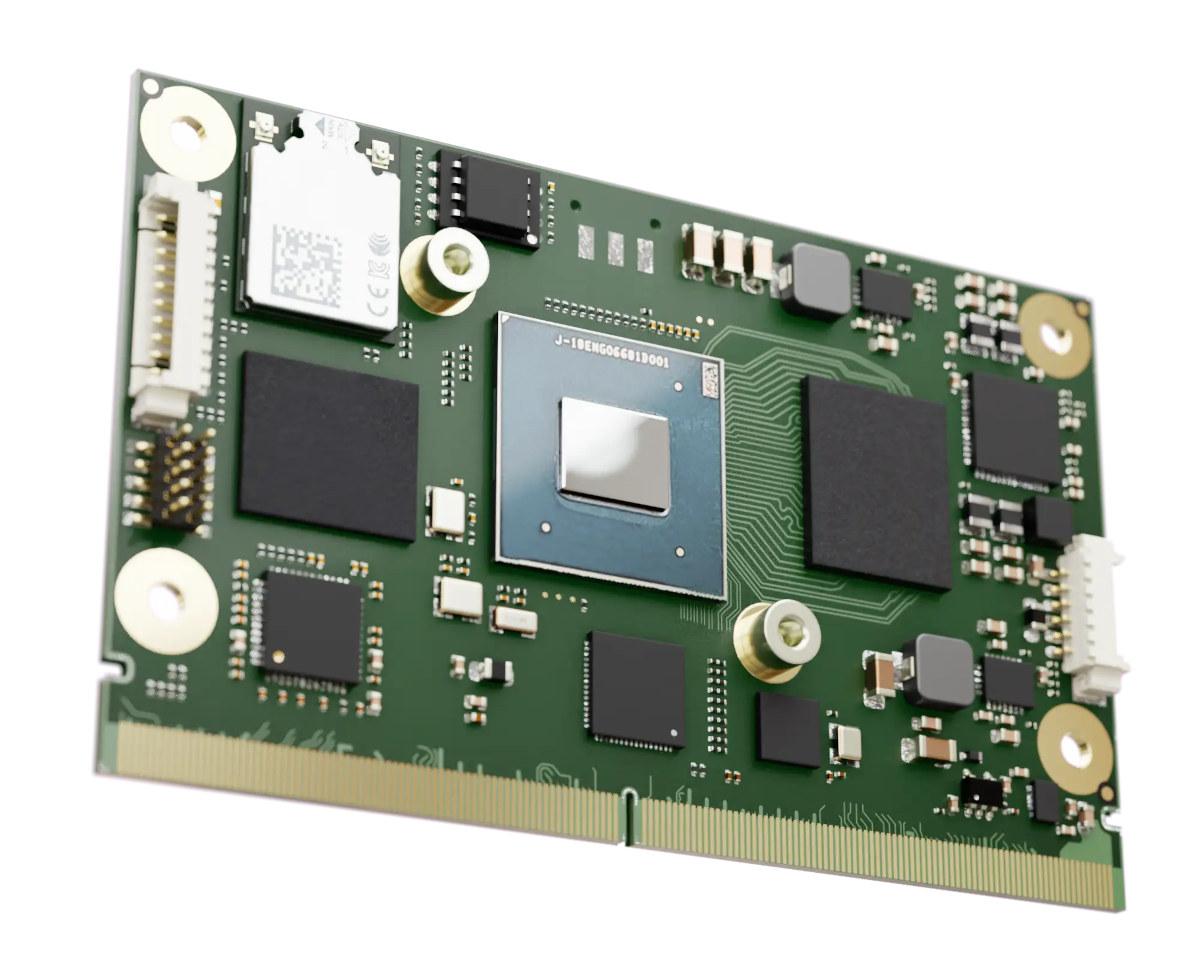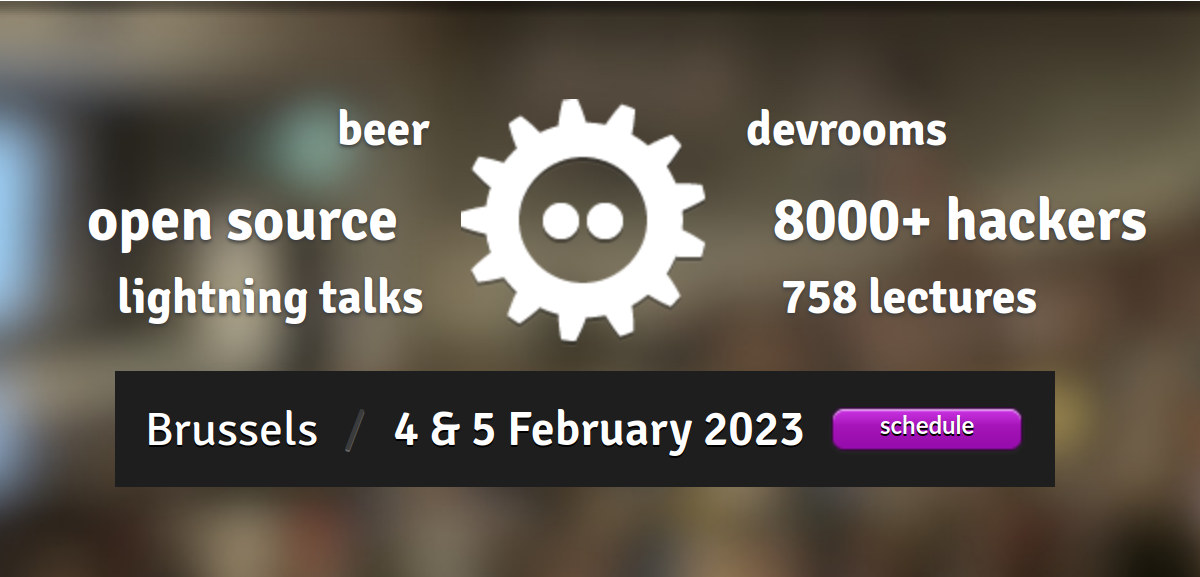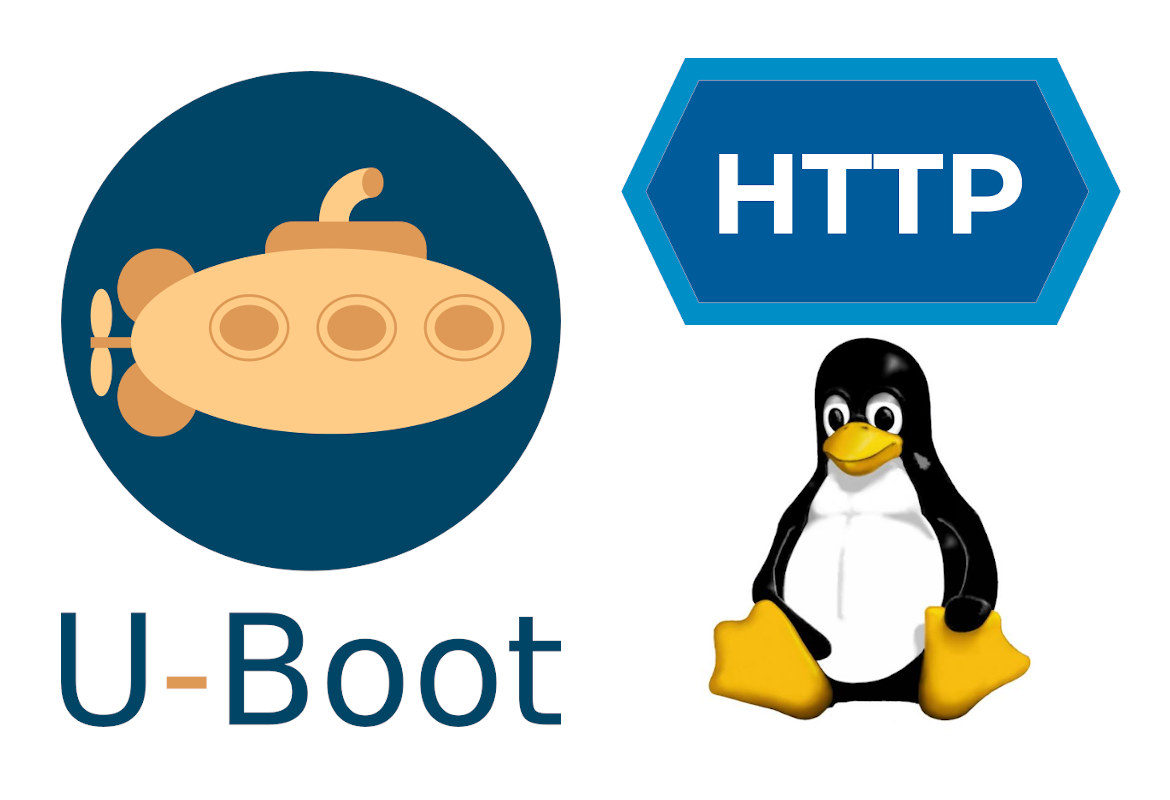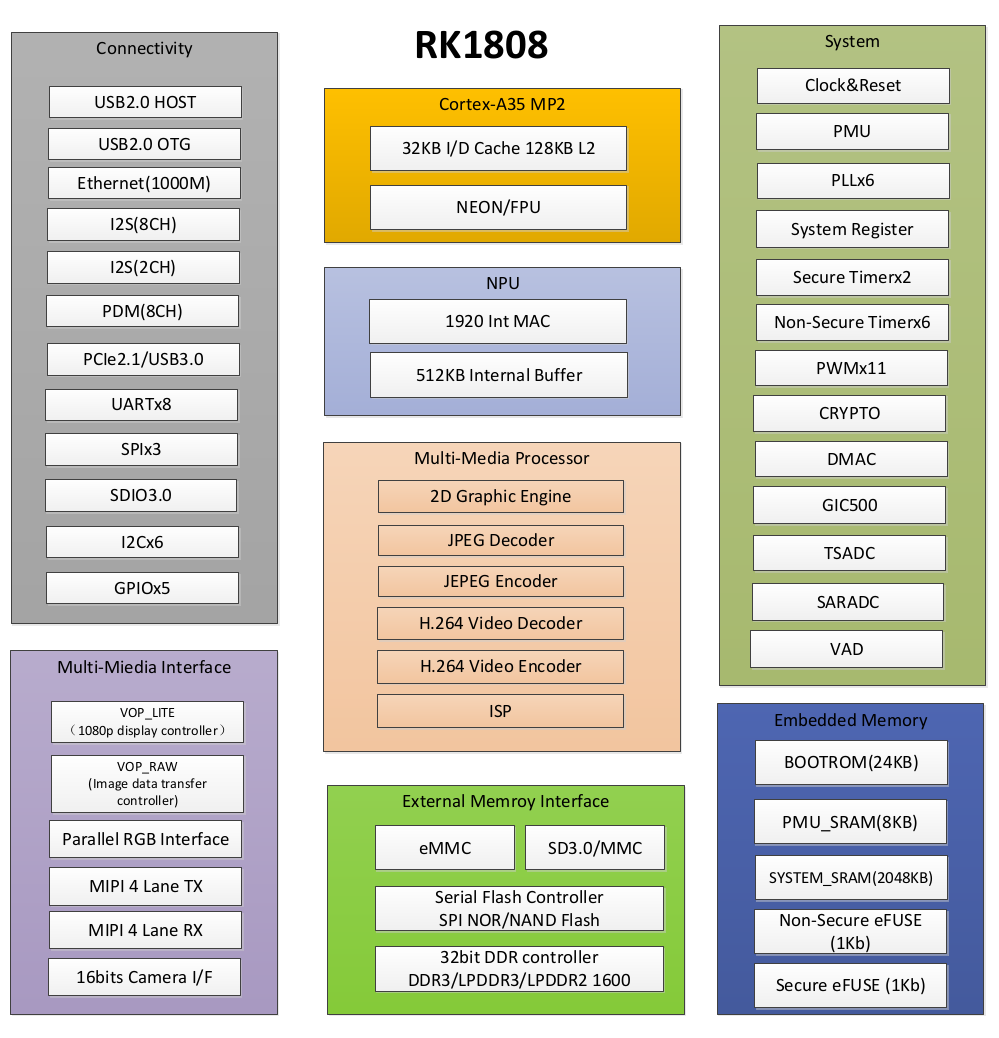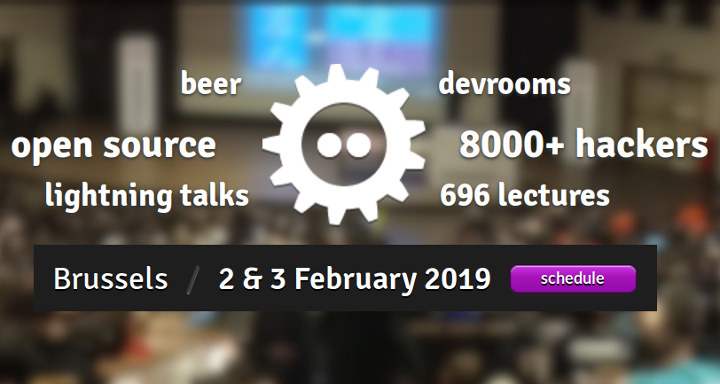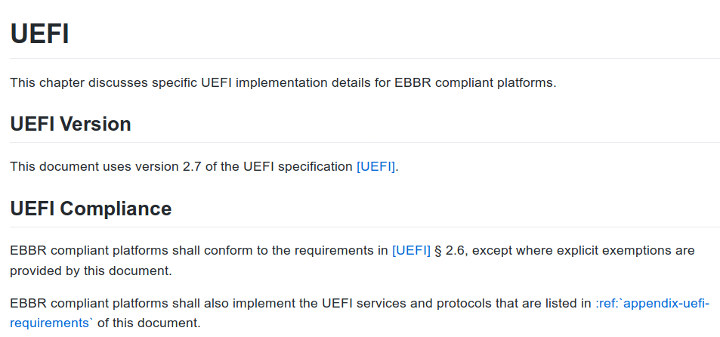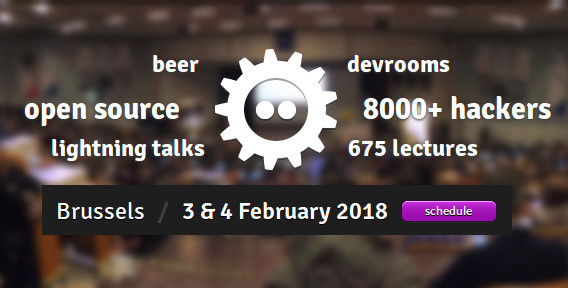The Rockchip RK3588 is one of the most popular Arm SoCs for single board computers, and while good progress has been made with regards to mainline u-boot and Linux support, the SoC is quite complex and it takes time to port all its features even though it was first teased in 2020 and the first Rockchip RK3588 SBCs were introduced in 2022. While the simpler Rockchip RK3566 and RK3568 SoCs are already fairly well supported in mainline Linux, more work is needed to upstream code, and as noted before in posts and comments here, Collabora keeps track of the status on Gitlab, and the company recently posted an article about the progress and future plans related to upstream Linux support for Rockchip RK3588. Rockchip RK3588 mainline Linux progress in 2024 Linux 6.7 kernel – Network support on the Radxa ROCK 5B using a 2.5GbE PCIe controller. Linux 6.8 kernel – […]
conga-SMX95 NXP i.MX 9596 SMARC 2.1 SoM supports M.2 1216 WiFi 6 and Bluetooth 5.3 modules
We had already written about NXP i.MX 95 SMARC 2.1 system-on-modules from ADLINK, iWave Systems, Avnet, and Advantech, but congatec has now launched its own with the conga-SMX95 featuring the NXP i.MX 9596 hexa-core Arm Cortex-A55 AI processor and up to 16GB LPDDR5 memory. The conga-SMX95 also comes with up to 256GB flash, is available on both commercial and industrial temperature grade variants, and exposes most of the same interfaces as competing products. What might be different is that the conga-SMX95 is offered with an optional M.2 1216 WiFi 6 and Bluetooth 5.3 wireless module. We’ve seen M.2 1216 wireless modules before, and they don’t use any M.2 socket but are LGA packages that need to be soldered to the target board/module. conga-SMX95 specifications: SoC – NXP i.MX 9596 CPU Up to 6x Arm Cortex-A55 application cores clocked at 1.8 GHz (industrial) or 2.0 GHz (commercial) with 32K I-cache and […]
FOSDEM 2023 schedule – Open-source Embedded, Mobile, IoT, Arm, RISC-V, etc… projects
After two years of taking place exclusively online, FOSDEM 2023 is back in Brussels, Belgium with thousands expected to attend the 2023 version of the “Free and Open Source Developers’ European Meeting” both onsite and online. FOSDEM 2023 will take place on February 4-5 with 776 speakers, 762 events, and 63 tracks. As usual, I’ve made my own little virtual schedule below mostly with sessions from the Embedded, Mobile and Automotive devroom, but also other devrooms including “Open Media”, “FOSS Educational Programming Languages devroom”, “RISC-V”, and others. FOSDEM Day 1 – Saturday February 4, 2023 10:30 – 10:55 – GStreamer State of the Union 2023 by Olivier Crête GStreamer is a popular multimedia framework making it possible to create a large variety of applications dealing with audio and video. Since the last FOSDEM, it has received a lot of new features: its RTP & WebRTC stack has greatly improved, Rust […]
U-boot now supports booting Linux from an HTTP server
Up until now, U-boot would only support the User datagram protocol (UDP) allowing for TFTP and NFS boot, but Linaro has now added support for TCP and HTTP in U-boot in order to boot Linux from common web servers. TFTP boot from U-boot has been supported for years, as around the year 2006 I remember implementing TFTP Linux boot for a Karaoke system in order to lower the BoM cost by selecting a smaller flash device, and I also explained how to boot Linux on a TV box with TFTP back in 2014. This requires installing a TFTP server on your server, which is quite a trivial task, but HTTP servers are omnipresent, so it’s a welcome addition to U-boot. If you want to use HTTP to boot Linux, it needs to be enabled in the U-boot config:
|
1 2 3 |
CONFIG_PROT_TCP=y CONFIG_PROT_TCP_SACK=y CONFIG_CMD_WGET=y |
The top and bottom options are pretty obvious, and the second […]
Rockchip RK1808 Datasheet, TRM, Schematics and Linux SDK Released
Rockchip RK1808 is the first chip from the company fully dedicated to artificial intelligence applications. The Neural Processing Unit (NPU) features an accelerator delivering up to 3.0 TOPS and is coupled with two low power Arm Cortex-A35 cores allowing it to run Linux. We’ve had the specifications for RK1808 for a while, but the company has recently posted hardware and software resources on their open source website. On the hardware side we’ve got: RK1808 Technical Reference Manual (TRM) RK1808 datasheet PDF Schematics for the company’s official RK1808-EVB On the software side we can get the Linux SDK from Github as explained in the Wiki:
|
1 2 3 4 5 |
git clone https://github.com/rockchip-linux/repo mkdir linux cd linux ../repo/repo init --repo-url=https://github.com/rockchip-linux/repo -u https://github.com/rockchip-linux/manifests -b master -m rk1808_linux_release.xml ../repo/repo sync |
Finally configure the build and start the build process:
|
1 2 3 |
sudo apt install liblz4-tool build-essential source envsetup.sh rockchip_rk1808 ./build.sh |
After a while, or more accurately close to two hours on a Laptop with Ryzen 7 2700U processor, 8GB RAM, and hard drive, we’ll get U-boot, Linux, buildroot based rootfs, and firmware files and in […]
FOSDEM 2019 Open Source Developers Meeting Schedule
FOSDEM – which stands for Free and Open Source Software Developers’ European Meeting – is a free-to-participate event where developers meet on the first week-end of February to discuss open source software & hardware projects. FOSDEM 2019 will take place on February 2 & 3, and the schedule has already been published with 671 speakers scheduled to speak in 711 events themselves sorted in 62 tracks. Like every year, I’ll create a virtual schedule based on some of the sessions most relevant to this blog in tracks such as open hardware, open media, RISC-V, and hardware enablement tracks. February 2 10:30 – 10:55 – VkRunner: a Vulkan shader test tool by Neil Roberts A presentation of VkRunner which is a tool to help test the compiler in your Vulkan driver using simple high-level scripts. Perhaps the largest part of developing a modern graphics driver revolves around getting the compiler to […]
Embedded Base Boot Requirements (EBBR) Project Aims to Standardize Booting on Embedded Systems
Desktop and server systems relies on standardized interfaces between the bootloader and the OS like UEFI and ACPI, but for embedded systems the way the bootloader, often U-boot, handles the boot flow may vary greatly between targets. Arm and its partners already worked on this in the server space with the Server Base Architecture Specification (SBSA) , and more specifically the Server Base Boot Requirements (SBBR) within the specification that requires the use of both UEFI and ACPI on servers. Arm has now done something similar with the Embedded Base Boot Requirements (EBBR) project that targets specifically embedded systems, is based on a subset of UEFI, and works with either ACPI or device tree. EBBR specification once implemented in bootloaders like U-boot or Tianocore/EDK2 should allow a single version of an OS image to boot on multiple platforms without the per-platform customization required today.. In practical terms it means the […]
FOSDEM 2018 Open Source Developers Meeting Schedule
FOSDEM (Free and Open Source Software Developers’ European Meeting) occurs every year on the first week-end of February, where developers meet for two days discussing about open source software projects. FOSDEM 2018 will take place on February 3-4 this year with 652 speakers, 684 events, and 57 tracks, an increase over last year 608 speakers, 653 events, and 54 tracks. There will be 8 main tracks namely: Community, History, Miscellaneous, Performance, Python, Security and Encryption, Space, and Global Diversity CFP Day. There will also be 33 developer rooms, and since the full schedule is now available, I’ll make a virtual schedule mostly based on sessions from the Embedded, mobile, and automotive, Hardware Enablement, and Internet of Things devrooms. Saturday 3, 2018 09:50 – 10:15 – Turning On the Lights with Home Assistant and MQTT by Leon Anavi In this presentation you will learn the exact steps for using MQTT JSON […]


